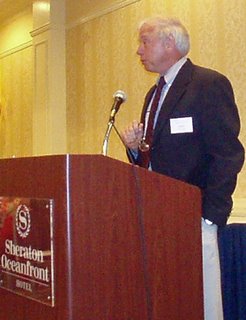
I want to call attention to our name, to look at it still another time for perhaps a deeper meaning. This is a question of our identity. One of the earliest challenges you had in your clinical training was in response to that question “Who are you?”
It became a maddening question asked by that supervisor, that committee, that fellow student. But we had to return to it again and again. And so I ask you still again. Our name: The College of Pastoral Supervision and Psychotherapy. Much is imbedded in those words.
Today there is only time to focus on the first two words: College and Pastoral. Perhaps next year we might address the last two words regarding the science and art of pastoral practice. We will see.
But first, this word College. Our founders were very wise to have chosen this name. Or perhaps divinely inspired, which is a bit of a stretch knowing them as we do today. Perhaps both. But is the right name at the right time and the right place. The College.
You might pause and notice that no other pastoral organization embraces this term, much less begins with it. Others feature a national or geographic focus of activity: The American Association of Pastoral Counselors; The Canadian Association for Pastoral Practice and Education; The National Association of Jewish Chaplains; The National Institute of Business and Industrial Chaplains; The National Association of Catholic Chaplains. Still other groups define themselves by administrative function: The Association of Clinical Pastoral Education; The Association of Professional Chaplains. Now these titles are all appropriate, all well and good and honorable. They accurately identify a focus. But it is no accident that we, in our life together, began from an entirely different point of view. It was never envisioned that we would be limited by the boundaries of this continent. That is very obvious as you simply look around you at this international audience. And likewise our identity was never framed in terms of political or administrative function as these were the bane of the founders and the point of the original reformation.
And so another name was chosen. The College. There had been another College once, the College of Chaplains, of which I was a Fellow for twenty-five years. I was at first astonished that the old College would give up this name. But then it made sense. Their primary new identity was to be an association to certify chaplains and not a company of persons intent on living together.
We are The College. The Latin origin is both collegium from which come our words colleague or collegiality, and collegia referring to a corporate partnership. Once in a while someone objects to this name thinking it refers to a school of higher education that grants a degree. But this is only a more recent definition; its historic definitions are much more clear. They include: “a self governing society of scholars for study and instruction” (e.g., the College of Surgeons); “a company or assemblage of persons with a common purpose;” “a gathering of clergy living together” (e.g. the College of Cardinals); and “an association of churches or religious leaders each equally empowered.”
Read the full text of this Address
Comments